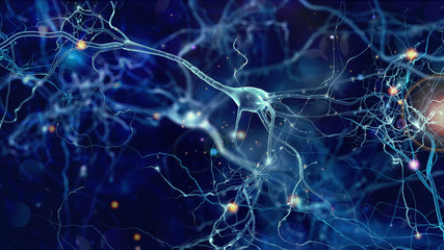Duchenne Muscular Dystrophy
Filter Results
Ethnicity-related DMD Genotype Landscapes in European and Non-European Countries
Genetic diagnosis and mutation identification are now compulsory for Duchenne (DMD) and Becker muscular dystrophies (BMD), which are due to dystrophin (DMD) gene mutations, either for disease prevention or personalized therapies. To evaluate the ethnic-related genetic assortments of DMD mutations, which may impact on DMD genetic diagnosis pipelines, we studied 328 patients with DMD and BMD from non-European countries.
Regenerative biomarkers for Duchenne muscular dystrophy
Skeletal muscle has an extraordinary capacity to regenerate after injury and trauma. The muscle repair mechanism is a complex process orchestrated by multiple steps. In neuromuscular disorders such as Duchenne muscular dystrophy (DMD), the pathological consequences of the lack of dystrophin and the loss of the dystrophin-associated protein complex are dramatic, with a progressive cascade of events, such as continual influx of inflammation, repeated cycles of degeneration and impaired regeneration.
Association of Elbow Flexor MRI Fat Fraction With Loss of Hand-to-Mouth Movement in Patients With Duchenne Muscular Dystrophy
To study the potential of quantitative MRI (qMRI) fat fraction (FF) as a biomarker in nonambulant patients with Duchenne muscular dystrophy (DMD), we assessed the additive predictive value of elbow flexor FF to age at loss of hand-to-mouth movement.
Life Expectancy in Duchenne Muscular Dystrophy: Reproduced Individual Patient Data Meta-analysis
Duchenne muscular dystrophy (DMD) is a rare progressive disease that is often diagnosed in early childhood and leads to considerably reduced life expectancy; because of its rarity, research literature and patient numbers are limited. To fully characterize the natural history, it is crucial to obtain appropriate estimates of the life expectancy and mortality rates of patients with DMD.
Severe Combined Immunodeficiency with De Novo Duchenne Muscular Dystrophy Mutation
Both severe combined immunodeficiency (SCID) syndrome and Duchenne muscular dystrophy (DMD) are rare conditions. Patients with X-linked SCID have pathogenic variants of the IL2RG gene, resulting in defective cellular and humoral immunity. DMD is also an X-linked condition caused by a dystrophin gene mutation, causing progressive proximal muscle weakness. We present a patient diagnosed with SCID at birth who underwent matched unrelated donor bone marrow transplant (BMT).
The elusive promise of myostatin inhibition for muscular dystrophy
Recent terminations of clinical trials of myostatin inhibitors in muscular dystrophy have raised questions about the predictiveness of mouse models for this therapeutic strategy.

